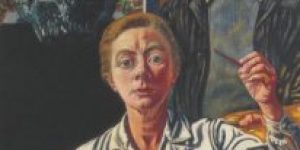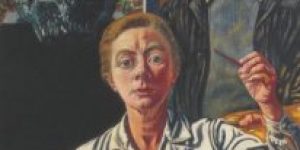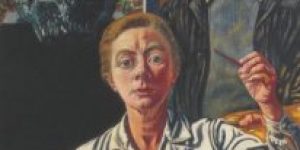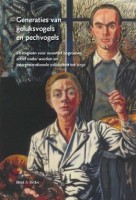Life-History Of A Workaholic ~ Autobiography Of Henk A. Becker
No comments yet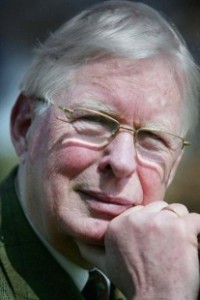 Workaholic as a self-image
Workaholic as a self-image
This autobiography revolves around the question of how the development as a workaholic has proceeded. It also discusses how this pattern of behaviour has persisted. This autobiography mentions family members only in passing. This should protect their privacy.
My roots (around 1880 – 1932)
The figurehead of my ancestry is Simon de Vries. He was the son of a carpenter from Westzaan. At the VU University he became ‘mr. in de rechten’, Master of Laws. He graduated during a time when the VU could not yet give academic titles. So he continued his studies with the University of Amsterdam, where he became a Doctor of Laws. Dr S. de Vries Czn founded a law firm at Keizersgracht in Amsterdam. From 1916 to 1920 he was the Minister of Finance for the Anti-Revolutionary Party. That was during the second cabinet of Ruys de Beerenbroek.
My grandfather opted for a systematic existence. Parsimony, thrift and ambition were the pillars of his life. His first wife was ‘Dikkie’, an unmistakable Burgundian. Two sons of the couple were also strongly Burgundian. The youngest son resembled his father in that he was a clear conformist. This means that he observed the rules of parsimony, thrift and working hard. The two daughters, including my mother, were only slightly Burgundian.
Shortly after the First World War the De Vries family was hospitable to a number of German pale-faces. Some time later the daughters of De Vries were invited to stay with the parents of these children in Wesel. One day a neighbour stopped by. My mother, Doppie, and the neighbour, Hans, fell in love at first sight. Many years later they were married.
Early youth (1933 – 1945)
I was born in 1933 in Greifswald. My father was a doctor of theoretical physics and at that time he worked with the University of Greifswald. In 1935 my brother Peter was born. Shortly after, my father was offered a position with the Siemens firm in Berlin. The family moved to an apartment in the district of Berlin-Siemensstadt.
Across from our apartment building there was a primary school. When I was six, I started my educational career there. From the first day on my father always warned me: ‘One wrong word and we’ll all end up in a concentration camp’. He called the then-head of state ‘der Wahnsinnskandidat’. My father has never been in the military and he was not a member of the political party that dominated the scene at the time.
During my whole life at school there was an air alarm every night. Every time we had to hide in the underground shelter below the apartment building. When we heard the whistling of falling bombs, we knew they wouldn’t fall on us. If they’d fall on us, we would not hear them coming.
For several months my mother, my brother and I resided in a village in Bavaria. My fellow classmates hated people from the north. They called me ‘du Saubub du dreckiger’.
Some years later we were evacuated to the village of Bernstein, east of the Oder in what is now Poland. Towards the end of the war this area was occupied by Russian forces. The victors behaved in a horrible way, especially by raping. I still think back occasionally to the local apothecary wife. She and her children had committed suicide. After they drugged themselves, the 16-year-old daughter was the only one to wake up. She hid with a group of women and children to which we also belonged. She was disguised as well as possible as a very young girl. A couple of Russian soldiers discovered it. In my mind I still hear the desperate sobbing of the girl as the soldiers dragged her away. We never saw her again.
I also remember the rape of a woman by a Russian officer. Panicked, she tried to jump down from a second floor window, but she was caught up in the bars. Screaming loudly she was pulled back in. The further course of the encounter is not hard to guess.
Finally my mother, my brother and I returned to Berlin. We travelled partly by foot, partly by train. At one point Russian and Polish soldiers were shooting at each other, right through the train. Despite everything, we managed to reach Berlin. In the middle of the night we stood before our apartment building. In our flat at the first floor, a light was burning. When we reached the front door and knocked, strangers answered. We were told that my father wasn’t there anymore.
My father had been at work with Siemens when in the room next to his a colleague was tortured by Russian soldiers. Later that day my father committed suicide in our flat. The colleague was taken away by the Russians shortly after that. No one has ever heard from him again. These events have led me to conclude that my father was wise to commit suicide.
After we returned to Berlin, we returned to our apartment. We lived there for some time. My mother worked as a secretary with the Dutch Military Mission with the ‘Allied Control Council’. Some months later we could go to the Netherlands. My grandfather had been remarried and lived in Wassenaar. ‘Oma Betje’ was not a Burgundian, but a conformist, like my grandfather.
My school years (1946 – 1953)
Just after the war it was wise to hide that you were German. To have my brother and me integrate as quickly and thoroughly as possible, my grandfather came up with a trick. He kept us off the streets in Wassenaar for a few months. During those months we were taught Dutch every day. The texts we read discussed the Dutch language, Dutch history and Dutch topography. Finally we had to copy the corrected texts. This allowed me to learn the Dutch language well enough to pass as a native within a few months. After about half a year my brother and I were sent to the Christian MULO in Wassenaar. I graduated within four years.
One day my grandfather told two of our uncles: ‘My grandchildren are not worth anything’. This made me furious. It was a frustration that had me in its grip for a long time. I see this remark of my grandfather’s as the first seed for me becoming a workaholic. My direct response was that I started looking for a job. First I became the youngest assistent ever in a large law firm in The Hague. Just a month later I worked my way up to solicitor clerk. Many more jobs followed in the administrative industry. In evenings and on weekends I followed a course for the national HBA-A exam. In the classroom I sat all the way at the back. When I was about to fall asleep, my head would knock against the wall. I passed the national exam in 1953. It was a result that hooked me.
Studying years (1954 – 1959)
After that my life changed dramatically. I moved to Leiden to study law. My mother and a cousin of hers provided me with the necessary monetary means. My new life included membership with one of the main students’ association of Leiden, the Leidsch Studentencorps. I started with participating in the so-called green time. Unfortunately the evenings in the Minerva Society displayed quite some similarities to my time under Russian occupation. A relatively high percentage of senior society members divulged in drunkenness and sadism. There was a ‘committee of support’ to represent the greenlings, but it didn’t do much. One specific evening springs to mind. The members of the committee were completely drunk and dancing on a table. One of the members waved about wildly with his walking cane. He hit me with the iron tip of the stick, right above the eye. So I just barely dodged being blinded in one eye. To be able to defend myself after my green time, I took boxing lessons. When I completed the course, I could have defended myself against the sadists. Instead I started to wonder: do I actually like this? My answer to that question was negative. I stopped my membership of the LSC.
One time my brother, Peter, gave me a snippet with an English article on ‘the silent generation’. This article made me curious. I attended lectures by Van Heek, a professor in sociology. In a sociology class I wrote an essay on an aspect of generations. One of the assistants noted: ‘It’s almost as if Henk Becker has been studying sociology for years.’ This experience made me decide to switch from law to sociology. After four years I completed my doctoral exam in sociology with a cum laude assessment. Some years before, I had already accepted a job with the Ministry of Social Work in The Hague. At the Binnenhof I worked with the Research and Policy department.
During my study period I met Johanna Enzlin, a sociology student. In 1959 we married. At Rapenburg we became the managing couple of a house of the Student Housing Association. Every workday I travelled to The Hague by train to fulfil my job as a policy consultant.
The Rotterdam Bank Association had gifted a hundred thousand guilders to the Netherlands School of Economics in Rotterdam to conduct research on the professionalisation of management. The Social Faculty of the School named me the project leader of this study. After four years the project was finished and I was given the opportunity to complete my doctoral degree with the final report. By then I had already been appointed lecturer of policy sociology.
At that time the Utrecht University released an advertisement in which they were looking for a professor of sociology. I gathered the courage to apply for this position. I was incredibly happy to be appointed professor at that university.
Professorship (1968 – 1998)
My title was ‘professor of sociology, especially social research methodology’. So I was given a content-related and a methodological position. I added a third task to this list myself: ‘the state-of-the-art in sociology’. I called this construction a tripod, which had the goal of preventing a one-sided specialisation. I started my professorship during a period that allowed professors quite much space to play around. In a book by Helmut Schelsky this construction was described as ‘Einsamkeit und Freiheit’.
I started my professorship in a turbulent period. The radical left-wing students fought the establishment of professors. Newly appointed, relatively young professors had nothing to do with it and could do little about it. And there were quite many of those. The Netherlands has fought the student revolution of the late sixties of the last century with a relatively costly extinguisher: appointing many relatively young professors.
My first lecture was disrupted by revolting students. In those years I was energetic enough to have strong mental armour. Enthusiastically I helped construct a new course programme for sociology. Many international textbooks were ordered.
My home situation also saw some changes. My wife and I moved to Doorn. We had two daughters. It was easy for me to reach the university area of De Uithof by car. From my office on the thirteenth floor I had a great view of the university buildings and the meadows around them.
When it comes to research, my first major project focused on the careers of academics in university education and research positions. I myself conducted a part of the research with thirty case studies. The second researcher managed a large-scale quantitative research. The sociologist Peter de Rooij was responsible for the third part of the research: a comparative study. He achieved his doctoral degree for his work on this project.
The results of the thirty case studies have been published. But the findings of the large-scale quantitative study have unfortunately remained unused. The researcher responsible faced a writer’s block and refused to publish the data. He didn’t even want to make the data available for processing by third parties. The failure of the second part of the project is the main failure of my empirical activities. Unfortunately I could not prevent this.
At the start of the 1980s I focused on the study of the generational pattern of society. In 1983 my first article was published in an academic journal. In 1992 I published the book ‘Generaties en hun Kansen’ (‘Generations and their Opportunities’). The book was a success. It was the first widely known book on a relatively new topic in our country. The topic of ‘generations’ has occupied a central position during the rest of my professorship in my academic work. I did not just publish on the topic in Dutch, but also in English and in German. In 1997 I was appointed Knight of the Order of the Netherlands Lion because of my work.
In 1998 my farewell lecture was titled ‘Discontinuous Changes’. The lecture addressed both discipline-focused and policy-focused research. In the academic world it was intended to break the overvalued preference for explanations based on constant variables and variables changing linearly. In the real world it was intended to break the tradition of not responding or responding too late to a turbulent social environment. The new form of research would be able to take these two hurdles best by presenting examples of successful changes. To this, it also applies that nothing breeds success like success.
Emeritus (1998 plus)
When I entered my emeritus period I continued my activities in academics. In 2012 my book, ‘Generations of Lucky Devils and Unlucky Dogs: Strategies for assertive growing up, active ageing and intergenerational solidarity up to 2030’, was published. It has a preface by Paul Schnabel. Available as a paperback and as e-book, in its original Dutch version as well as translated into English.
With its bonus chapters this book has transformed into a ‘living document’. On the publisher’s website there regularly appear complements to the book. The website is easy to find. (rozenbergquarterly.com/category/europe generations)
You May Also Like
Comments
Leave a Reply


